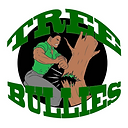The Importance of Regular Tree Maintenance for Healthy Growth
- treebullieskc
- Jun 9, 2025
- 3 min read
Trees are more than just beautiful additions to our landscapes; they are vital components of our ecosystem. Regular tree maintenance plays a crucial role in promoting healthy growth, enhancing longevity, and ensuring that trees continue to thrive. In this blog post, we will explore why regular tree maintenance is necessary, what it entails, and how it benefits both trees and their surrounding environments.
What is Tree Maintenance?
Tree maintenance encompasses a wide range of practices designed to uphold the health and aesthetics of trees. This includes routine inspection, pruning, trimming, fertilization, watering, and pest management. Regular maintenance helps identify potential issues early, preventing minor problems from becoming severe.
For example, consistent inspection can reveal signs of diseases, such as leaf discoloration or unusual growth patterns. Detecting these issues early allows for prompt action, including potential treatment or removal of affected branches.

Benefits of Regular Tree Maintenance
Maintaining trees regularly comes with numerous benefits. Here are some of the most significant advantages:
Improved Health and Longevity
Trees, like any living organism, require care to flourish. Regular maintenance ensures that trees have optimal conditions for growth. By removing dead or diseased branches, the overall health of the tree is enhanced, allowing it to allocate more energy to new growth.
According to research, well-maintained trees can live significantly longer. For instance, a healthy oak can live over 100 years, but neglect can reduce this lifespan by decades.
Enhanced Aesthetics
A well-maintained tree not only contributes to the health of the tree itself but also enhances the beauty of the landscape. Regular trimming and shaping create trees that are visually pleasing and can enhance property value. A well-groomed tree can serve as a focal point in any garden or yard.

Safety Considerations
Neglected trees can pose risks, particularly during storms or high winds. Weak branches may fall, causing property damage or injuries. Regular inspections can help identify weak points and structural issues in trees. By addressing these issues early, homeowners can avoid possible accidents.
Statistics show that thousands of injuries occur each year due to falling branches. Regular maintenance is a proactive approach to ensuring the safety of your home and loved ones.
Environmental Benefits
Trees play a critical role in our ecosystem. They provide oxygen, improve air quality, and offer habitat to various wildlife. Healthy trees can absorb more carbon dioxide, thus aiding in the fight against climate change. Regular maintenance helps ensure that trees can fulfill these important functions effectively.
Furthermore, well-maintained trees contribute to urban cooling, reducing energy costs for air conditioning in surrounding homes. In fact, it has been estimated that one large tree can provide enough oxygen for two people annually.

Steps for Effective Tree Maintenance
Effective tree maintenance involves several key steps. Here’s how you can ensure the longevity and health of your trees:
Regular Inspection
Conduct regular inspections of your trees. Look for signs of pests, diseases, or structural weakness. Document any changes or concerns, as this will assist in monitoring the tree's condition over time.
Pruning and Trimming
Regular pruning and trimming help promote healthy growth. Removing dead or crossing branches allows improved air circulation and light penetration. This encourages healthy new growth. For more comprehensive services, consider professional tree trimming and pruning services. Such services can assess and manage your trees effectively.
Watering and Fertilizing
Ensure that your trees receive adequate water and nutrients. New trees, in particular, require regular watering for the first few years after planting. Depending on the tree species and soil conditions, incorporating fertilizers may also promote healthier growth.
Pest Management
Pest management is essential to ward off invasive species that can harm your trees. Consult with professionals to identify the best treatments for any pests or diseases that might affect your trees.
Mulching
Applying mulch around the base of trees not only enhances aesthetics but also conserves moisture and suppresses weeds. Organic mulch, like wood chips or bark, can improve soil health as it decomposes.
Final Thoughts on Tree Maintenance
Investing time and resources into regular tree maintenance has excellent long-term benefits. Healthy trees contribute to the environment, enhance property value, and ensure safety. Additionally, the aesthetics they provide cannot be underestimated.
Make a habit of checking your trees regularly, invest in proper care, and don't hesitate to consult professionals for guidance. The well-being of your trees reflects the care and attention you provide—and a responsible approach to tree maintenance ensures that your landscape remains vibrant and flourishing for years to come.




Comments